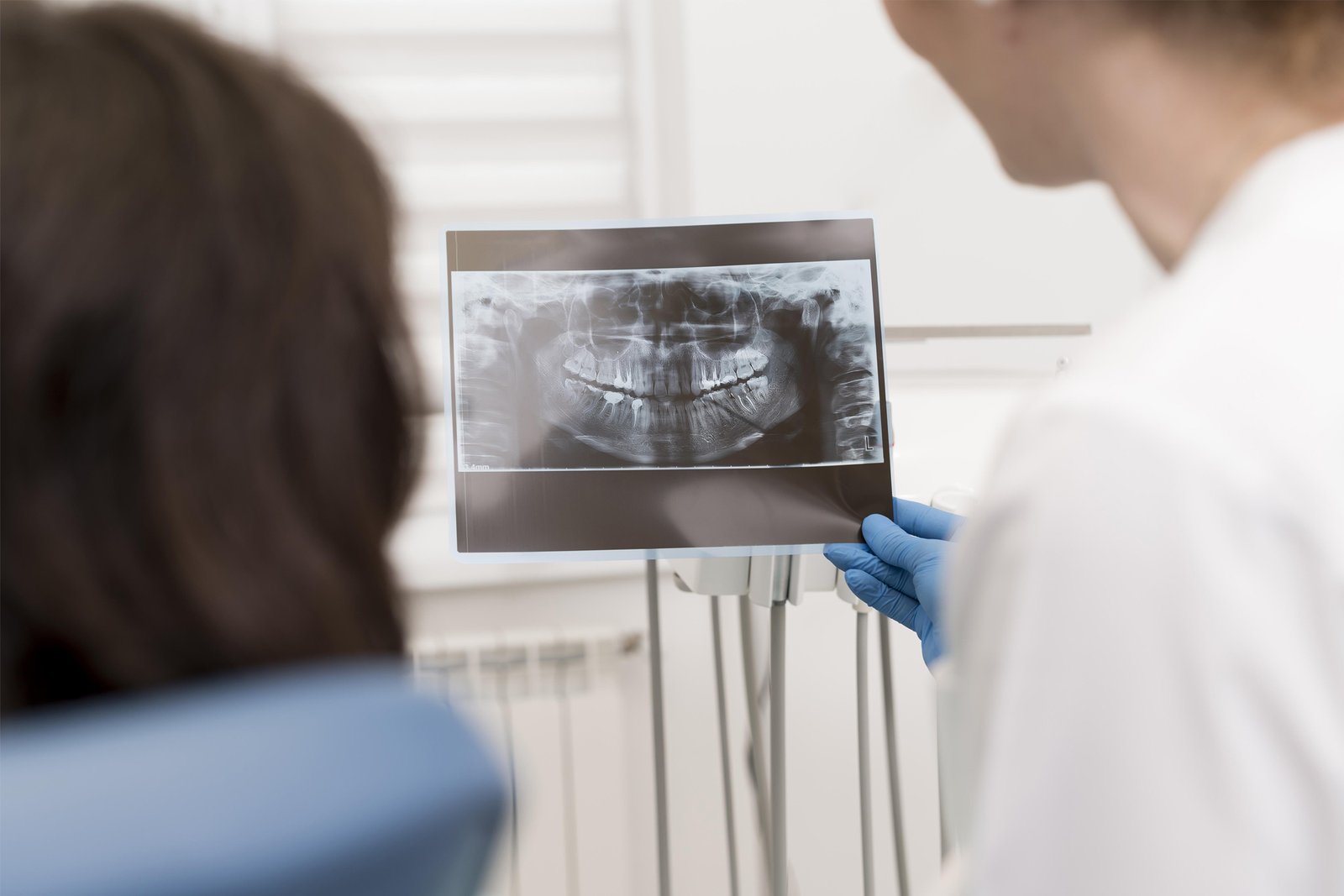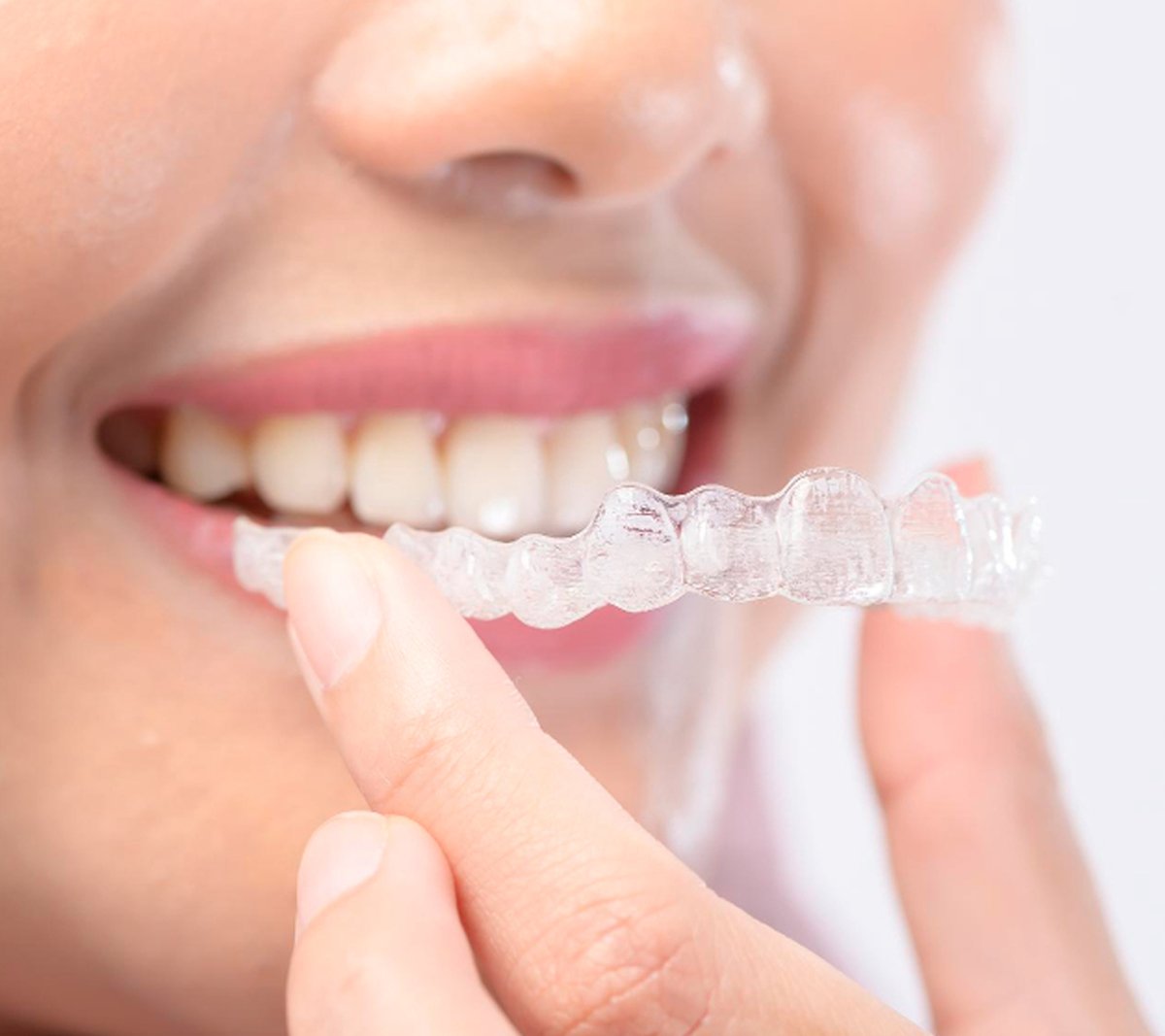WHAT IS BRUXISM?
Bruxism is the involuntary act of clenching or grinding the teeth, which can occur both during the day (daytime bruxism) and at night (nocturnal bruxism). This habit can lead to various dental and musculoskeletal complications if not properly addressed.
MOST COMMON CAUSES
The causes of bruxism are varied and include:
- Stress and anxiety: These are common triggering factors, as bruxism may be a response to emotional tension.
- Dental misalignment: Problems with the bite or alignment of the teeth can contribute to bruxism.
- Sleep disorders: Conditions such as sleep apnea may be associated with nocturnal bruxism.
- Lifestyle: Excessive consumption of caffeine, alcohol, and tobacco use may increase the likelihood of developing bruxism.


CONSEQUENCES OF BRUXISM
If left untreated, bruxism can lead to problems ranging from significant dental wear, including fractures or chips, chronic pain in the jaw and facial muscles, and issues with the temporomandibular joint that can cause pain and movement limitations. It can also negatively affect the patient’s quality of life, leading to sleep problems and anxiety.
PREVENTION OF BRUXISM
- Stress Management: Practicing relaxation techniques such as meditation and yoga can help reduce stress and, consequently, bruxism.
- Sleep Hygiene: Establishing a healthy sleep routine and avoiding stimulants before bed can improve sleep quality.
- Regular Dental Care: Visiting the dentist regularly for check-ups can help detect bruxism early and take preventive measures.
SYMPTOMS
Symptoms of bruxism may include:
- Pain and stiffness in the jaw.
- Dental sensitivity due to wear.
- Headaches, especially upon waking.
- Difficulty opening the mouth.
- Grinding noises that may be heard by others during the night.
TREATMENTS
- Occlusal Splint:
- Occlusal splints are custom-made dental devices placed on the dental arch to prevent direct contact between the teeth.
- They help distribute pressure evenly, protect the teeth from wear, and relieve tension in the jaw muscles.
- They are mainly used at night and can come in various types, such as soft or rigid, depending on the patient’s needs.
- Physical Therapy:
- Physical therapy can be an effective option for relieving bruxism symptoms, especially pain and muscle tension.
- Physical therapists can teach relaxation and stretching exercises, as well as massage techniques for the jaw and neck muscles.
- Methods such as heat or cold therapy and electrotherapy can also be used to reduce pain and inflammation.


FREQUENTLY ASKED QUESTIONS
Bruxism is an involuntary habit of clenching or grinding the teeth, which can occur both during the day (daytime bruxism) and at night (nocturnal bruxism). This habit can cause dental wear and discomfort in the jaw.
The causes of bruxism are not always clear, but they may include factors such as stress, anxiety, dental alignment issues, sleep disorders, and the consumption of substances like caffeine, alcohol, or tobacco.
Symptoms include headache, jaw pain, discomfort in the facial muscles, dental wear, and in severe cases, temporomandibular joint (TMJ) problems. A grinding sound may also be noticeable at night.
Bruxism is diagnosed through a clinical examination by a dentist, who will evaluate the wear on the teeth and ask about symptoms. Sometimes, audio recordings may be used to identify grinding during the night.
Treatments may include the use of splints or dental guards that are worn at night to protect the teeth and reduce pressure on the jaw. Stress management techniques, behavioral therapy, and in some cases, medications may also be recommended.
Yes, bruxism can cause significant dental wear, fractures, or chips in the teeth and can lead to tooth sensitivity and other dental problems, such as gum recession.
Although it cannot always be prevented, some strategies can help, such as reducing stress through relaxation exercises, avoiding excessive consumption of caffeine and alcohol, and maintaining good sleep hygiene.
No, bruxism can affect people of all ages, including children. However, the symptoms and severity may vary. In children, bruxism is often related to tooth eruption or stress.
Stress is a common factor that can trigger or worsen bruxism. Emotional tensions can lead to increased muscle tension and teeth grinding habits, especially during the night.
Yes, it is important to treat bruxism, especially if it causes discomfort or dental damage. Proper treatment can help prevent dental wear, relieve pain, and improve the patient’s quality of life.

With the right treatment, bruxism is no longer a concern.
We help you improve your quality of life!


